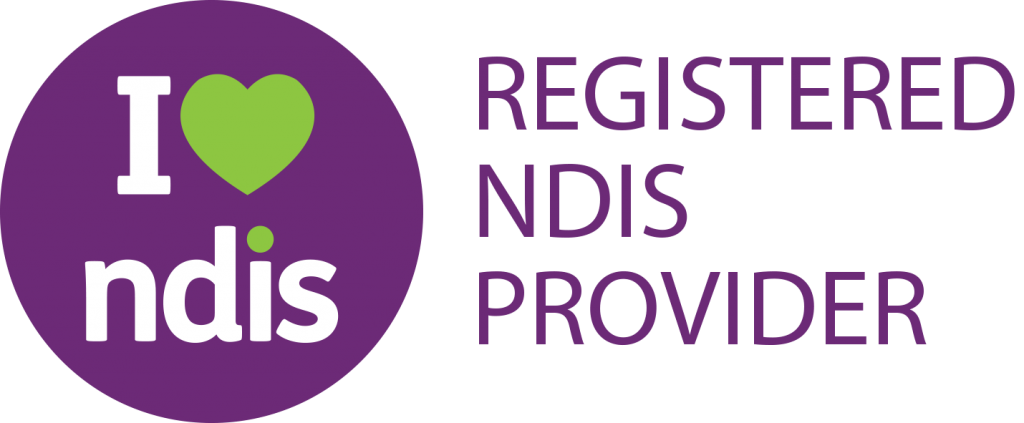Understanding Functional Behaviour Assessment and Its Role in NDIS Plans
Introduction
Functional behaviour assessment (FBA) represents a systematic, evidence-based approach that transforms how NDIS participants, families, and support workers address challenging behaviours. For individuals enrolled in the National Disability Insurance Scheme (NDIS), understanding the role of functional behaviour assessment in developing comprehensive support plans proves essential for achieving positive behaviour support outcomes and improving quality of life.
At Nurse Aid Australia, our experienced behaviour support practitioners recognise that challenging behaviours serve specific functions and communicate unmet needs. Through evidence-based assessment processes, we help NDIS participants access appropriate funding and develop person-centred behaviour intervention strategies that address the root causes of concerning behaviours.
What is Functional Behaviour Assessment?
Definition and Core Purpose
A functional behaviour assessment involves a comprehensive evaluation process that identifies why challenging behaviours occur, rather than simply focusing on what behaviours look like. This systematic approach examines the function each behaviour serves for the individual, enabling behaviour support practitioners to develop targeted intervention strategies.
Unlike traditional behaviour management approaches that often use restrictive practices, functional behaviour assessment prioritises understanding the individual’s communication attempts through their actions. This person-centred methodology aligns directly with NDIS principles of participant choice and control.
The Science Behind FBA
Evidence-based functional behaviour assessment utilises the ABC model – examining Antecedents (what happens before), Behaviour (the specific action), and Consequences (what occurs after). This systematic data collection approach reveals patterns that help behaviour specialists understand environmental factors, sensory needs, communication difficulties, and other triggers contributing to challenging behaviours.
Research consistently demonstrates that interventions developed from comprehensive functional behaviour assessment prove more effective than generalised behaviour management strategies. The assessment process incorporates multiple data sources, including direct observation, interviews with family carers and support workers, and analysis of historical behaviour patterns.
Functional Behaviour Assessment vs Traditional Behaviour Management
Traditional behaviour management often focuses on reducing challenging behaviours through immediate consequences or restrictive practices. In contrast, functional behaviour assessment takes a proactive, holistic approach that:
- Identifies underlying reasons for behaviour patterns
- Develops positive behaviour support strategies
- Teaches functional communication skills
- Addresses environmental modifications
- Promotes long-term success through sustainable interventions
The FBA Process: A Step-by-Step Guide
Initial Assessment Phase

The functional behaviour assessment process begins with comprehensive information gathering from multiple sources. Behaviour support practitioners collaborate with NDIS participants, family members, support workers, and allied health professionals to understand the individual’s daily routines, preferences, communication methods, and historical behaviour patterns.
During this phase, practitioners examine medical records, previous assessments, and existing support plans to establish baseline understanding of the person’s needs and circumstances.
Data Collection Methods
Systematic data collection forms the foundation of quality functional behaviour assessment. Practitioners employ various evidence-based tools including:
Direct Observation: Behaviour specialists observe individuals in their natural environments – home, community, work, or educational settings – documenting specific behaviour occurrences, duration, intensity, and surrounding circumstances.
Functional Assessment Interviews: Structured interviews with family carers, support workers, and other key people provide insights into behaviour patterns across different settings and situations.
Behaviour Rating Scales: Standardised assessment tools help quantify behaviour frequency and impact on daily functioning.
Analysis and Hypothesis Development
Following comprehensive data collection, behaviour support practitioners analyse patterns to develop hypotheses about behaviour function. Common behaviour functions include:
- Attention seeking from preferred people
- Escape or avoidance of demands or situations
- Access to preferred items, activities, or sensory input
- Communication of needs, wants, or discomfort
This analysis phase enables practitioners to understand individual motivations and develop targeted positive behaviour support strategies.
Timeline and What to Expect
A thorough functional behaviour assessment typically requires 4-6 weeks, depending on behaviour complexity and data collection requirements. NDIS participants and families can expect regular communication throughout the process, with practitioners providing updates on findings and preliminary recommendations.
FBA’s Critical Role in NDIS Planning
NDIS Framework Alignment
Functional behaviour assessment directly supports core NDIS principles by promoting participant choice, control, and independence. The assessment process ensures behaviour support interventions align with individual goals, cultural values, and personal aspirations outlined in NDIS plans.
Funding Justification
Comprehensive functional behaviour assessment provides essential evidence for NDIS funding requests related to behaviour support services. The assessment documentation demonstrates participant needs and justifies inclusion of specific supports such as:
- Behaviour support practitioner services
- Positive behaviour support plan development
- Support worker training and capacity building
- Allied health therapeutic interventions
- Assistive technology for communication or sensory needs
Integration with Support Categories
Core Supports: Functional behaviour assessment findings inform daily support needs, including assistance with social and community participation, consumables, and transport requirements.
Capacity Building: Assessment recommendations guide therapeutic supports, including behaviour intervention training for family carers and support workers.
Capital Supports: FBA may identify needs for home modifications, assistive technology, or vehicle modifications to address environmental triggers.
Quality and Safeguards Commission Requirements
The NDIS Quality and Safeguards Commission mandates functional behaviour assessment before approving comprehensive behaviour support plans involving restrictive practices. This requirement ensures evidence-based decision-making and promotes least restrictive alternatives.
Benefits for NDIS Participants and Families
Immediate Benefits
- Reduced frequency and intensity of challenging behaviours
- Improved safety for participants and support workers
- Enhanced family confidence in managing difficult situations
- Better understanding of individual communication needs
Long-term Outcomes
- Increased community participation and social engagement
- Development of functional communication skills
- Greater independence in daily living activities
- Improved relationships with family, friends, and support workers
- Enhanced quality of life and personal wellbeing
Family and Carer Empowerment
Functional behaviour assessment includes comprehensive training for family carers and support workers, ensuring consistent implementation of positive behaviour support strategies across all environments. This collaborative approach promotes sustainable outcomes and reduces reliance on external behaviour support services over time.
Who Needs a Functional Behaviour Assessment?
Eligibility Criteria
NDIS participants may require functional behaviour assessment when experiencing challenging behaviours that:
- Present safety risks to themselves or others
- Interfere with daily functioning, learning, or community participation
- Require restrictive practices or emergency interventions
- Impact family wellbeing or support worker effectiveness
Specific Conditions and Circumstances
Functional behaviour assessment proves particularly beneficial for individuals with:
- Autism spectrum disorders: Addressing sensory processing issues, communication difficulties, and routine disruptions
- Intellectual disability: Managing transitions, social interactions, and independence skill development
- Acquired brain injury: Responding to cognitive changes, emotional regulation challenges, and environmental adaptations
- Mental health conditions: Integrating behaviour support with therapeutic interventions
Age Considerations
Behaviour support practitioners adapt functional behaviour assessment approaches based on developmental stage, cognitive ability, and communication capacity. Paediatric assessments involve family-centred approaches, while adult assessments emphasise participant choice and self-determination.
Choosing the Right FBA Provider
Professional Qualifications
Quality functional behaviour assessment requires appropriately qualified behaviour support practitioners with:
- University qualifications in psychology, social work, or related disciplines
- Specialised training in positive behaviour support methodologies
- NDIS registration and compliance with quality standards
- Experience working with specific disability types and age groups
What to Look for in a Provider
When selecting a functional behaviour assessment provider, consider:
- Evidence-based assessment methodologies
- Collaborative approach involving families and support teams
- Cultural competency and person-centred focus
- Clear communication and reporting processes
- Ongoing support during plan implementation
The Nurse Aid Australia Difference
Nurse Aid Australia combines clinical nursing expertise with specialised behaviour support knowledge, offering a unique holistic approach to functional behaviour assessment. Our registered nurses understand the complex interactions between medical conditions, medications, and behaviour patterns, ensuring comprehensive assessment and intervention planning.
Our person-centred approach prioritises participant dignity, family involvement, and sustainable outcomes that promote independence and community participation.
Common Concerns and Misconceptions
Cost and Funding Worries
Many families worry about functional behaviour assessment costs. However, NDIS funding typically covers assessment expenses when conducted by registered providers. Our team assists families in understanding funding pathways and accessing appropriate support allocations.
Process Anxiety
Some participants and families feel anxious about formal assessments. We address these concerns through clear communication, gradual introduction to assessment processes, and emphasis on collaborative rather than evaluative approaches.
Cultural and Privacy Concerns
Functional behaviour assessment respects cultural values, family preferences, and privacy requirements. Assessment processes accommodate diverse cultural practices and involve families in determining appropriate assessment methods and settings.
Getting Started with Functional Behaviour Assessment
Referral Process
NDIS participants can access functional behaviour assessment through:
- Support coordinator referrals
- Allied health professional recommendations
- Direct family requests
- Plan manager arrangements
Preparation Checklist
Before beginning assessment:
- Gather relevant medical records and previous assessments
- Document current behaviour concerns and triggers
- Identify family goals and priorities
- Prepare questions about the assessment process
- Consider cultural or religious considerations
Next Steps After FBA
Following functional behaviour assessment completion, participants receive:
- Comprehensive assessment report with findings and recommendations
- Positive behaviour support plan development
- Training and capacity building for families and support workers
- Ongoing monitoring and plan adjustments
- Connection with appropriate therapeutic services
Conclusion and Call-to-Action
Functional behaviour assessment plays a vital role in NDIS planning, providing the evidence-based foundation for effective positive behaviour support interventions. Through systematic assessment processes, NDIS participants gain access to targeted supports that address underlying behaviour functions while promoting independence, community participation, and improved quality of life.
At Nurse Aid Australia, our experienced behaviour support practitioners are committed to delivering comprehensive, person-centred functional behaviour assessments that empower individuals and families to achieve their goals. Contact our team today to discuss how functional behaviour assessment can support your NDIS journey and unlock positive outcomes for you and your family.
Ready to Take the Next Step?
At Nurse AID Australia, we’re here to support you in turning your NDIS goals into real-world outcomes. Whether you’re looking to join community activities, improve your social confidence, or access tailored support services—we’re just a click away.
Have questions? Contact our friendly team to discuss how we can help you or your loved ones thrive through the NDIS.




